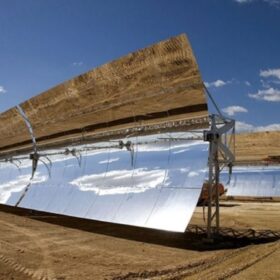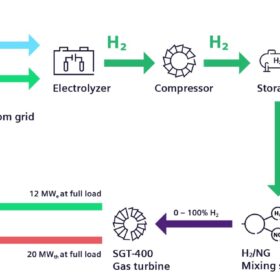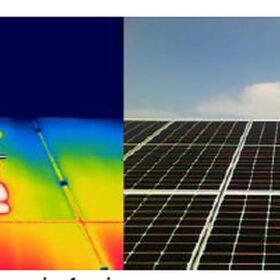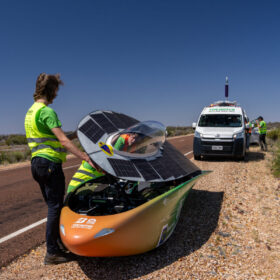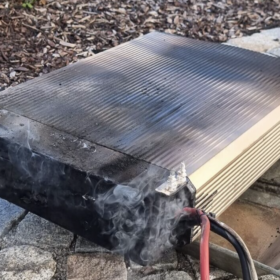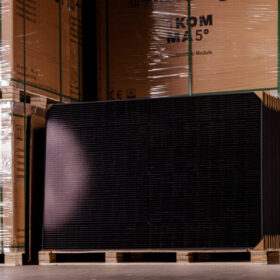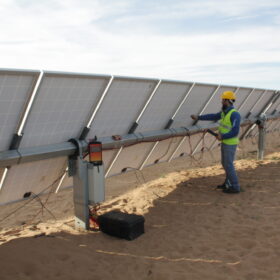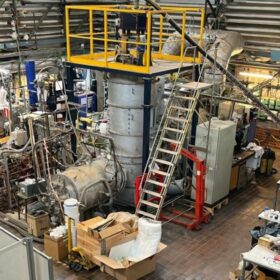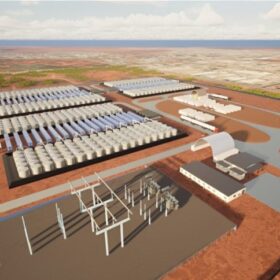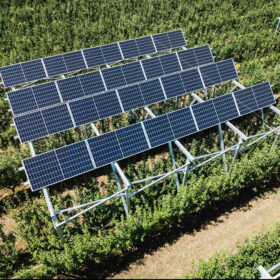Spain rockets to fourth in global utility-scale solar listing
Spain recorded more than 20 GW of installed solar capacity at the end of last year, according to recently published data from Wiki-Solar. The website’s founder claims that the country is becoming a PV powerhouse as utility-scale developers increasingly roll out projects.
Acciona, Stanwell ink offtake deal for 380 MW Aldoga Solar Farm
Stanwell Corporation has signed a long-term offtake agreement with Spanish renewable energy developer Acciona Energia to purchase 100% of the output from the proposed Aldoga Solar Farm to power a 3 GW green hydrogen project being developed near Gladstone on the central Queensland coast.
Gas turbine driven by 100% renewable hydrogen for first time
The Siemens Energy-led Hyflexpower consortium has conducted a series of tests on a gas turbine located on the premises of Smurfit Kappa, a paper-based packaging supplier.
UNSW student team to push for change in World Solar Challenge
The solar-powered Stella Terra test car from The Netherlands’ Eindhoven University has just completed a 1,000 kilometre test drive from northern Morocco to the Sahara. In Australia, the solar car racing team from the University of New South Wales says the real challenge is to find new ways to push the boundaries of solar car races.
Combination of half-cut, bifacial solar cell designs may contribute to hotspot formation
Scientists in Spain tested PV modules under partial shading conditions, aiming to better understand the formation of performance-damaging hotspots. The study reveals a potential issue particularly affecting half-cell and bifacial modules, which may cause accelerated performance loss and is not covered by current testing/certification standards.
Perovskite-silicon tandem tech tested in solar race car
A team of Dutch university students under the banner Top Dutch Solar Racing has installed perovskite silicon tandem cells in its entry in the 16th edition of Bridgestone World Solar Challenge. The upcoming race is a six-day, 3,000km expedition across Australia, from Darwin to Adelaide.
Germany, Austria hit by multiple solar battery fires linked to LG
pv magazine has learned that five solar-related fires in Germany and Austria occurred in late September. Photographs show that two of the blazes were likely caused by residential batteries manufactured by LG.
1Komma5° announces TOPCon solar module factory in Germany
1Komma5° says it plans to start production at a new TOPCon solar module factory in Germany from next year. The Hamburg-based startup aims to achieve an annual production capacity of 1 GW, with further expansion targets set to reach 5 GW by the year 2030.
New method to take PV plant measurements in the field
Spanish researchers claim to have established new measurement methods to assess the performance degradation of PV modules without the need for removing and reinstalling the tested PV modules from their operating positions. The new approach is claimed to increase productivity in PV plant quality control activities.
Swedish startup to use green hydrogen plasma in pilot reactor for solar grade silicon
Encouraged by lab results and a feasibility study, Swedish startup, Green14, in collaboration with Sweden’s Royal Institute of Technology (KTH) plans to build a pilot-scale reactor to make solar grade silicon with a hydrogen plasma process. The company sees the pilot as a step towards using a more sustainable method to produce solar grade silicon for the PV industry at its own gigawatt-scale plant.
